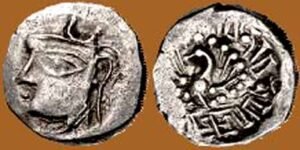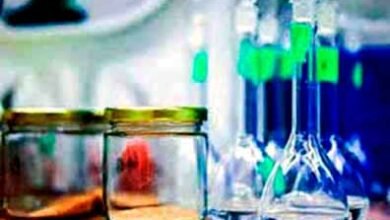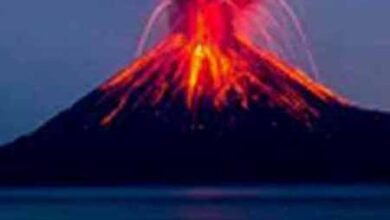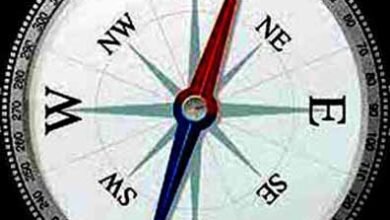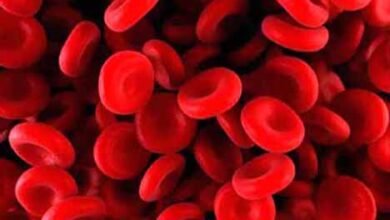
Related to History – 161.
|
1. Who is the recent ancestor of modern man? = Cromagnon Man. 2. What was the means of entertainment of primitive man in the Paleolithic age? = Hunting. 3. When did Vikram Samvat start? = Befor 57 AD. 4. Who is the author of Kadambari? = Banabhatta. 5. Which book has been translated into 15 Indian and 40 foreign languages? = Panchatantra. 6. Who composed the ‘Natyashastra’? = Bharatmuni. 7. What is the oldest form of Devanagari script? = Brahmi Script. 8. Who composed the ‘Hitopadesh’? = Narayan Pandit. 9. Which era is called the ‘Chalcolithic Age’? = Chalcolithic Age. 10. Which cereal was used by humans in ancient times? = Barley. 11. Which script was written from right to left in ancient India? = Kharoshthi script. 12. Which region was ruled by the Chera dynasty? = Near modern Coimbatore, Salem and Karur districts (Tamil Nadu) and some areas of central Kerala. 13. Where did Harsha shift his capital from Thaneshwar? = Kannauj. 14. Who started the Kumbh Mela? = Harshavardhana. 15. Who is called ‘Sakalottarapathnath’? = Harshavardhana was the last ruler of the Pushyabhuti dynasty. 16. Who reorganised a large part of North India after the Gupta dynasty? = Harshavardhana. 17. Which was the most important city of North India during the reign of Harsha? = Kannauj. 18. What was the court language of the Gupta rulers? = Sanskrit. 19. Which ruler donated the income of 100 villages to Nalanda University? = Harshavardhana. 20. What was the Gupta dynasty famous for? = Revenue and Land Reforms. 21. Where is Harshavardhana’s capital Thaneshwar located at present? = Uttar Pradesh. 22. Where did Harshavardhana hold his religious meeting? = Kannauj and Prayag. 23. Which ruler of the Gupta dynasty stopped the invasion of the Huns? = Skandagupta. 24. Who was the famous ruler of the Chera dynasty? = Sengutthuran. 25. Who was the chief of the cotton textile industry during the Chola period? = Uraiyur. 26. Whose reign was the ‘Treaty of Chittor’ signed between the Mughals and the Raja of Mewar? = Mughal-Mewar treaty signed between Jahangir and Amar Singh. 27. Where was the capital of the Pandyas? = Madura. 28. Which ruler of Bengal was a contemporary of Harsha? = Shashank. 29. Who was Aryabhata? = Astronomer and Mathematician. 30. Who discovered zero? = Aryabhatta. 31. Aryabhata was a contemporary of which dynasty? = Gupta dynasty. 32. Who is known as ‘Akbar of Kashmir’? = Sultan Zainul Abidin. 33. Who was the founder of the Shunga dynasty? = Pushyamitra Shunga. 34. Bhimbetka was famous for? = Rock paintings of caves. 35. Which Sultan of Delhi created a separate department for agriculture and planned to do ‘Rotation of Crops’? = Mohammed bin Tughlaq. 36. Which rivers was the city of Taxila situated? = It was situated between the Indus and Jhelum rivers. 37. Which Sultan of Delhi called himself the second Alexander (Sikander-i-Sani)? = Alauddin Khilji. 38. Pluralism is the main centre of the theory and psychology of which religion? = Jainism. 39. Who is called Voharik Mahamatna? = Judge. 40. The rulers of which dynasty first introduced tax-free land or villages (land grants) to Brahmins and Buddhist monks? = Satavahana. ========== ========= =========== इतिहास से संबंधित-161.
1. आधुनिक मानव के हाल का पूर्वज कौन है? = क्रोमैगनन मनुष्य. 2. पुरापाषाण युग में आदि मानव के मनोंरजन का साधन क्या था? = शिकार करना. 3. विक्रम संवत का शुभारंभ कब हुआ ? = 57 ईस्वी पूर्व. 4. कादंबरी के लेखक कौन हैं ? = बाणभट्ट. 5. किस पुस्तक का 15 भारतीय भाषाओं और 40 विदेशी भाषाओं में अनुवाद किया जा चुका है? = पंचतंत्र. 6. नाट्यशास्त्र’ की रचना किसने की? = भरत मुनि. 7. देवनागरी लिपि का प्राचीनतम रूप क्या है? = ब्राह्मी लिपि. 8. हितोपदेश’ की रचना किसने की? = नारायण पंडित. 9. किस युग को ‘चाल्कोलिथिक एज’कहा जाता है? = ताम्र-पाषाण युग. 10. प्राचीन काल में मानव द्वारा किस अनाज का प्रयोग हुआ? = जौ. 11. प्राचीन भारत में कौन-सी लिपि दाईं ओर से बाईं ओर लिखी जाती थी? = खरोष्ठी लिपि. 12. चेर वंश का शासन किस क्षेत्र पर था? = आधुनिक कोयम्बटूर, सलेम तथा करूर जिले (तमिल नाडु) तथा मध्य केरल के कुछ क्षेत्रों के पास. 13. हर्ष ने अपनी राजधानी थानेश्वर से कहाँ स्थानांतरित की? = कन्नौज. 14. कुंभ के मेले का शुभारंभ किसने किया? = हर्षवर्धन. 15. सकलोत्तरापथनाथ’ किसे कहा गया है? = पुष्यभूति वंश के अंतिम शासक हर्षवर्धन को. 16. गुप्त वंश के पश्चात् उत्तर भारत में बड़े भाग का पुनर्गठन किसने किया? = हर्षवर्धन. 17. हर्ष के शासनकाल में उत्तर भारत का सबसे महत्वपूर्ण शहर कौन-सा था? = कन्नौज. 18. गुप्त शासकों की राजदरबारी भाषा क्या थी? = संस्कृत. 19. किस शासक ने नालंदा विश्वविद्यालय के लिए 100 ग्रामों की आय दान के रूप में दी? = हर्षवर्धन. 20. गुप्त राजवंश किसके लिए प्रसिद्ध था? = राजस्व और भूमिसुधार. 21. हर्षवर्धन की राजधानी थानेश्वर वर्तमान में कहाँ स्थित है? = उत्तर प्रदेश. 22. हर्षवर्धन अपनी धार्मिक सभा कहाँ किया करता था? = कन्नौज तथा प्रयाग. 23. गुप्त राजवंश के किस शासक ने हूणों के आक्रमण को रोका? = स्कंदगुप्त. 24. चेर वंश का प्रसिद्ध शासक कौन था? = सेंगुत्तुरन. 25. चोल काल में सूती वस्त्र उद्योग का प्रमुख कौन-सा था? = उरैयूर. 26. किसके शासनकाल में मुगलों तथा मेवाड़ के राजा के बीच ‘चित्तौड़ की सन्धि’ हस्ताक्षरित हुई? = जहांगीर और अमर सिंह के बीच मुगल-मेवाड़ संधि पर हस्ताक्षर किए. 27. पांड्यों की राजधानी कहाँ थी? = मदुरा. 28. बंगाल का कौन-सा शासक हर्ष के समकालीन था? = शशांक. 29. आर्यभट्ट कौन था? = खगोल वैज्ञानिक व गणितज्ञ. 30. शून्य की खोज किसने की? = आर्यभट्ट. 31. आर्यभट्ट किस वंश के समकालीन था? = गुप्त वंश. 32. ‘अकबर ऑफ कश्मीर’ किसे कहा जाता है? = सुल्तान जैनुल आबिदीन. 33. शुंग राजवंश का संस्थापक कौन था? = पुष्यमित्र शुंग. 34. भीमबेटका किसके लिए प्रसिद्ध था? = गुफाओं के शैलचित्र. 35. दिल्ली के किस सुल्तान के कृषि के लिए एक अलग विभाग बनाया तथा ‘फसलों का चक्रण’ (Rotation of Crops) करने की योजना बनाई? = मोहम्मद बिन तुगलक. 36. तक्षशिला नगर किन नदियों के मध्य स्थित था? = सिन्धु और झेलम नदियों के मध्य स्थित था. 37. दिल्ली के किस सुल्तान ने स्वंय को दूसरा सिकन्दर (सिकन्दर-इ-सानी) कहा? = अलाउद्दीन खिलजी. 38. अनेकतावाद किस धर्म के सिद्धान्त तथा मनोविज्ञान (Theory and Philosophy) का मुख्य केन्द्र है? = जैनधर्म. 39. वोहारिक महामात्न किसे कहा जाता है? = न्यायाधीश. 40. किस वंश के शासकों ने ब्राह्मणों एवं बौद्ध भिक्षुओं को करमुक्त भूमि या गाँव (भूमि अनुदान) देने की प्रथम आरम्भ की? = सातवाहन.
|


